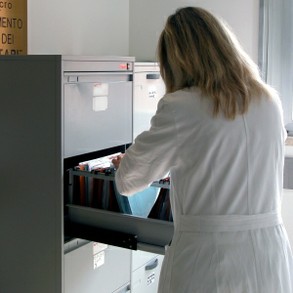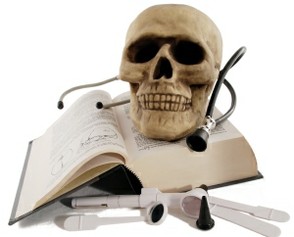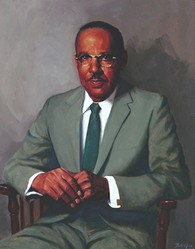Everything.
Ok, so maybe not, but at times it may seem like it. You see, the field of medical assisting is not extremely well-regulated. So, as long as you can do the job and your employer trusts your abilities (and it is not breaking any laws, of course) you can do it.
Customer Service
A lot of medical assistants are employed at the front desk. They are the smiling faces that greet you and hand you those complicated insurances and health history forms to complete. Their knowledge of medical terminology empowers them to help the customer understand exactly what is going on.
Medical Records
Doctors can never get enough help with their medical records and billing. Granted, unless you are trained in medical coding, you may never do a lot on the insurance side. However, there is always a lot of paperwork to be filed and a medical assistant is the perfect employee to help with that.
Vitals
Here's where the stethoscope comes in. The medical assistant is typically the person to settle you into the patient room. They will measure your weight, check your blood pressure and ask a couple clarifying questions about why you have come to the doctor.
Bandages and Medications
As with all of the other duties performed by a medical assistant, this one will very based on the state statutes where you live. Most states require the doctor to be present in the building in order to provide "proper supervision" of these more medically related tasks.
Whenever you get hired by your new employer, make sure they explain to you clearly what you are and are not allowed to do in order to abide by the regulations of you local ordinances.
Versatility is Key!
Medical assistants have the training and the experience to be well-rounded. They take a lot of pressure off of the nursing and medical staff by helping with the lower-level medical services as well as the time-intensive paperwork. If you are feeling versatile, medical assisting may be for you.
















 5 Star Urgent Response Reviewon 07/18/2012
5 Star Urgent Response Reviewon 07/18/2012
 Nespresso Aeroccino 3 For Yummy Espresso Frothon 07/08/2012
Nespresso Aeroccino 3 For Yummy Espresso Frothon 07/08/2012
 How Much Do Movers Coston 04/19/2012
How Much Do Movers Coston 04/19/2012



Comments